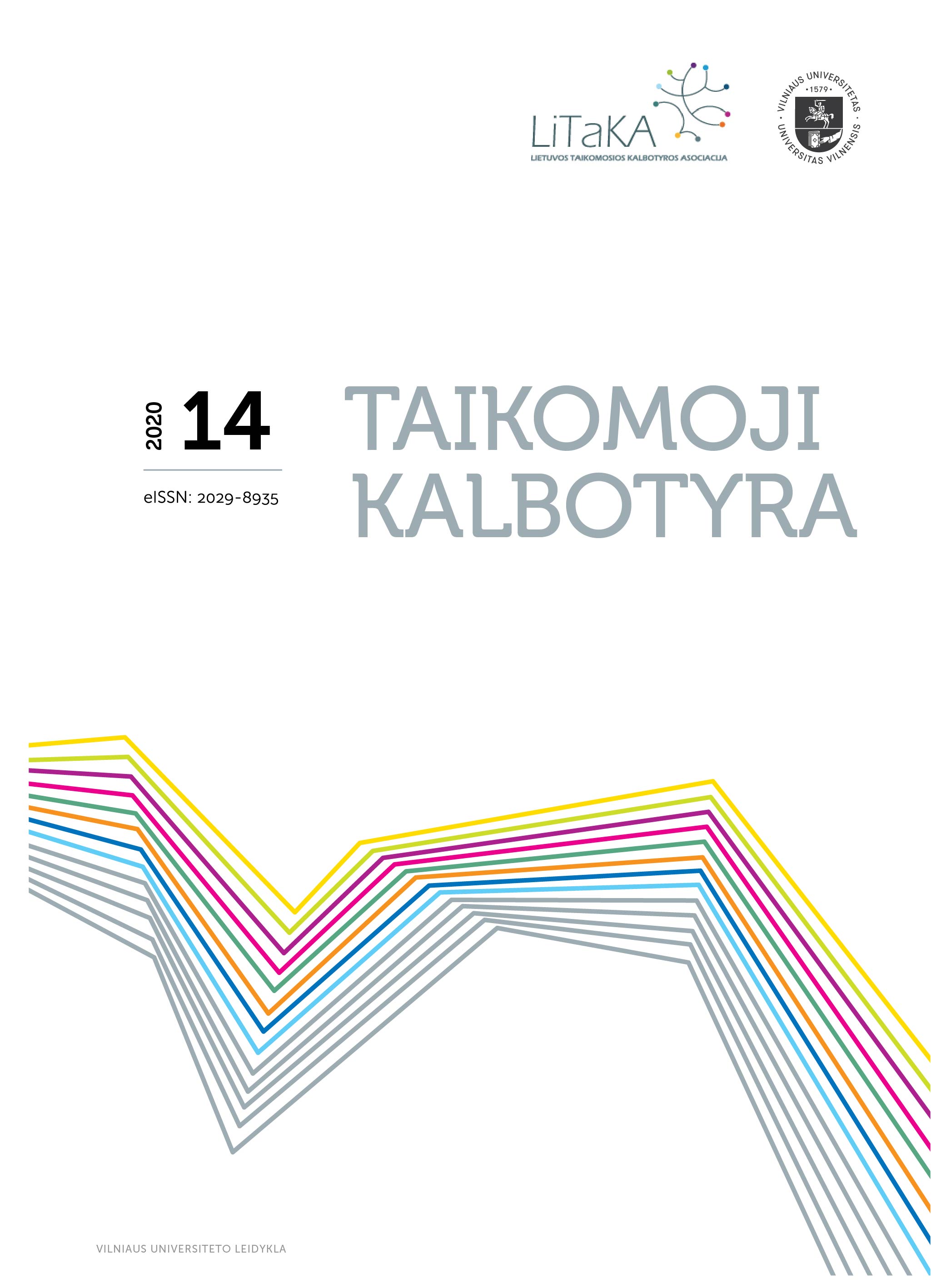Airijos lietuvių gimtosios kalbos žodyno dydis ir atricijos požymiai
Irish Lithuanian L1: Vocabulary Size and Signs of Its Attrition
Author(s): Eglė VaisėtaitėSubject(s): Language and Literature Studies, Sociolinguistics
Published by: Vilniaus Universiteto Leidykla
Keywords: vocabulary size; vocabulary attrition; native language; sociolinguistic factors;
Summary/Abstract: Sociolinguistic research shows that Lithuanians in the diaspora notice changes in their mother tongue, especially vocabulary. Therefore, there is a need to study L1 vocabulary attrition in the Lithuanian diaspora. Since one of the main directions of current emigration is Ireland, this article seeks to answer the question of whether the signs of vocabulary attrition can be observed in the language of the first generation of Lithuanian emigrants living in Ireland, and to provide some insight into what factors might influence this trend. This paper describes and analyzes the results of the vocabulary size test of 100 Lithuanians living in Ireland and the answers to the questions of a sociolinguistic survey. The survey involved adults who left Lithuania at the age of 12 or older and consider Lithuanian as their mother tongue. The data of the target group are compared with the data of Lithuanians living in Lithuania (LL) (100 respondents). The results of both groups are compared by applying the T test, and the influence of sociolinguistic factors on vocabulary is estimated by applying regression analysis.The results have revealed that the Irish Lithuanian (IL) vocabulary is smaller than that of Lithuanians living in Lithuania (in average 60,300 and 62,100 words, respectively), and this difference is statistically significant (p = 0.048). The empirical analysis has revealed that education does not affect the size of the IL vocabulary but is significant for the LL vocabulary. The difference in vocabulary size between the IL and LL groups is mainly due to the results of those with higher university education, while the results of those with lower education are very similar in the two groups. However, the IL vocabulary positively correlates with the age of the respondents at the time of the survey (p = 0.01) and the age at the time of emigration (p = 0.006). Thus, it can be assumed that the IL vocabulary continued growing while the respondents were still living in Lithuania, but after emigration their L1 vocabulary stopped increasing. Lack of communication in Lithuanian with people in Lithuania has a negative impact on the respondents’ L1 vocabulary. Considering these results, it can be argued that there are signs of vocabulary attrition in Irish Lithuanian L1.
Journal: Taikomoji kalbotyra
- Issue Year: 2020
- Issue No: 14
- Page Range: 116-132
- Page Count: 17
- Language: Lithuanian

